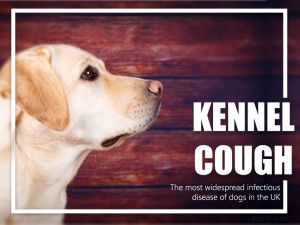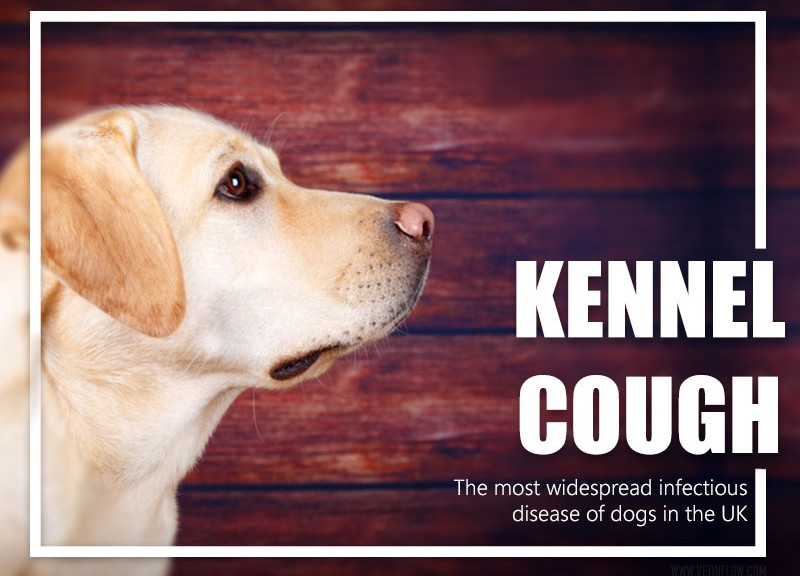 Kennel cough, or infectious tracheobronchitis, is a highly infectious disease of dogs that affects their upper respiratory tract. The most common clinical sign is a persistent, dry, hacking cough but some dogs can become depressed, develop a temperature and even present sneezes and a running nose.
Kennel cough, or infectious tracheobronchitis, is a highly infectious disease of dogs that affects their upper respiratory tract. The most common clinical sign is a persistent, dry, hacking cough but some dogs can become depressed, develop a temperature and even present sneezes and a running nose.
Kennel cough is just a general term for contagious upper respiratory tract infection as this disease can be caused by several agents, both viral and bacterial. The most common pathogens involved are a bacteria called Bordetella and a virus called Parainfluenza.
Kennel cough is not a dangerous disease and has a very good prognosis. Most dogs will recover fully in a few weeks without any treatment. However, this disease can become more serious for vulnerable groups of pets such as very young or very old dogs and dogs that may be debilitated due to some other disease.
Despite the fact that dogs can handle the infection on their own treatment can help reduce the duration of the disease, the general discomfort and make the cough less severe.
This disease is highly contagious and will quickly spread between dogs that are in close contact with one another. The infectious particles (bacterial or viral) will travel in small droplets of fluids and mucus of affected dogs and they will spread it when they cough or sneeze. For this reason it is highly recommended not to mix a dog when he or she is sick with other dogs.
Any occasion that might involve gathering several dogs such as puppy parties, dog shows or staying in kennels is an excellent opportunity for the disease to spread around. Since the agent can survive in a dog’s environment for a long time, dogs can even get infected by walking through an area where an infected dog has been.
The best way to prevent your dog from getting kennel cough is to vaccinate against the disease. The vaccine is a bit different from regular vaccines as it is given as drops into the dog’s nose (intranasal). The vaccine is not 100% effective but it is recommended if your dog is going regularly into kennels, if it frequently comes in contact with other dogs or if you have many dogs in your household. Most kennels will not let you board your dog if or she is not vaccinated against kennel cough.
